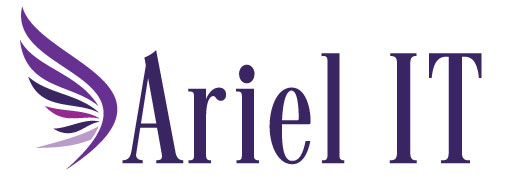VoIP – “Voice over Internet Protocol”
VoIP, also called Internet Telephony is defined as the technology that allows voice, fax, SMS and voice-messaging over the Internet rather than the public switched telephone network (PSTN). You can use VoIP with a traditional style phone, from your computer or an app on a mobile device to call any other telephone number. VoIP converts your voice (analog) to digital packets that can be forwarded along the internet.
The Argument for VoIP for Business
VoIP has been around for a long time and has reached the point where it is common place for Telephone System vendors and IT Solutions companies to offer it as part of their suite of products. The benefits are increasingly hard to ignore and the problems we have been afraid of are becoming less of an issue as Internet bandwidth and reliability improve. As a result many businesses are now considering VoIP solutions in place of traditional phone solutions. The other big reason for the switch is that traditional phone services with multiple “lines”, conferencing, long distance, and voicemail are expensive and inflexible. Businesses are also discovering that trying to manage individual cell phones for employees can be near impossible, expensive, and difficult to track. And, with individual cell phones your customers end up calling a personal number rather than your business, which can be a marketing and operations nightmare! VoIP solves both of those issues. As wonderful as VoIP is, it’s not without its problems. Back in the day you had one (maybe two) vendors for phone service. And although customer service was often an issue the quality of the phone call was generally impeccable. Typical articles today will list 100’s of VoIP product vendors and there are many that are not listed. The potential problems are two-fold. First, because there are so many vendors in this space it’s hard to identify which ones are providing quality service. Second, your internal network and your Internet connection play a key role in the quality of your phone calls (which was not the case with traditional phone systems). However, armed with the right information (or a good solution provider) there is little doubt that VoIP is the way to go for just about every business.
Choosing a VoIP Solution Provider
Choosing a quality provider is important. The big names are generally a good place to start. They tend to be a little more expensive but they have the resources to solve problems and improve quality. However, you need to ask around and do your research. We are working with a small business as I write this that is struggling with one of the largest providers of Internet and VoIP in our area with lost voicemails, missed calls and poor customer service. Here are some things to consider when evaluating VoIP Providers (I will assume contracts and pricing is something you already plan to consider):
- Do you want a fully hosted solution, a combination of on-premise and hosted or a full on-premise system with VoIP “trunks or lines”
- Is Long Distance included and if so to where… 48 States? Alaska and Hawaii? Canada? What is the cost for International calling or other Long Distance that isn’t provided? Are there any limitations to Long Distance?
- How is call quality handled? Will your provider test your Internet connection? Do they have tools or hardware in place to ensure quality phone calls?
- What happens if there are call quality issues? Who is responsible for the costs troubleshooting the issue?
- How many calls can going on simultaneously? (And consider how many you need… this is often a place for big savings)
- What changes do I need to make to my internal network? Do you require a separate phone network? Do I have to setup QoS on my network (Quality of Service)
- Are there additional costs for remote phones, using an app on my phone, using a home computer?
- Is faxing provided with the solution? If so, how is that handled? And, what if I have a traditional fax machine that needs an analog connection?
- How is 911 handled? What if I’m on a mobile application or at home?
- What options do you have for physical phones?
- What is support like, when is it available and what is the escalation process?
- How long has your business been providing VoIP services?
- How do you handle emergency devices such as security systems, elevator phones, etc.
- Can you help me determine how many simultaneous calls I need to have?
Pros and Cons to VoIP
Pros
- Unlimited calling domestic is typical. Lower rates for International. Sometimes Canada is included
- Voicemail to email, text notifications
- Easily configure your number to find you at your home office or mobile phone, allowing your customers to
reach your employees, even if they work remotely - Conference calling is typically included
- Automated attendant
- Call Queues and Call Center features
- Automatic Line Bursting – if all of your lines are busy and you get another call, a temporary “on-the-fly”
line is added, so you only subscribe to the number of lines you need for normal business operations (be
sure to ask if bursting has a charge) - Lower upfront costs for fully hosted services
- Lower per line costs and flexibility to increase and decrease services
- With a hosted solution your phone system stays up even if your power or Internet is down
Cons
These aren’t as much Cons as they are things that must be considered for a successful VoIP implementation
- VoIP requires a reliable Internet connection. Larger business should consider fiber
- Bandwidth management is important to ensure call quality
- Having enough bandwidth is less of an issue today but should be a consideration.
- Internet and Network issues will impact phone call quality
- Power outages may impact your phone system. Ask about how this can be minimized. (and, a Pro is that in a hosted solution the system is still up, extensions can be dialed and voice mail left even if your office is down)
- VoIP can be susceptible to viruses and hacking
arielMIS Proposition
I have spent the last few years evaluating and implementing solutions for our customers. We started out with an On-Premise VoIP solution supported by some select partners providing VoIP phone trunks. Over the last year I have evaluated a variety of hosted solutions and ultimately decided to go with with Star2Star Communications. Star2Star Communications products and services meet the expectations of high quality, cost-effective VoIP solutions for small businesses as well as providing solutions that scale into Enterprise grade solutions. According to their materials, 70% of customers using Star2Star solutions save 10% or more on their monthly communications bill, which can be spent on more strategic business initiatives for you. So far, all of this has proven true for us and we are thrilled to be implementing their solutions. That said, we work with our customers on a variety of telephony solutions and make ourselves available to help our customers figure out the best solution for their organization. Contact us to learn more about VoIP solutions and how our solutions can provide improved telephone capabilities and service flexibility to grow with your business.
arielMIS is a Managed Service Provider (MSP) providing businessCARE™ IT services designed to keep you and your employees productive and safe. Contact Us if you're interested in learning more about our services.

